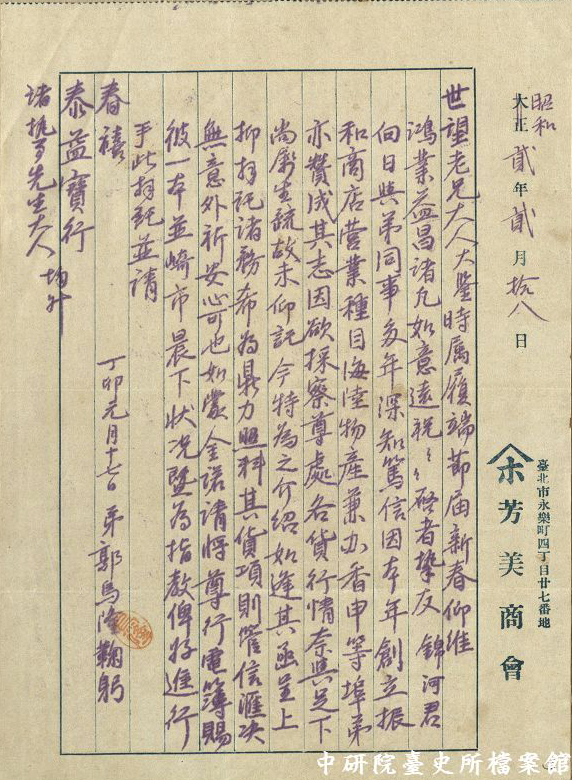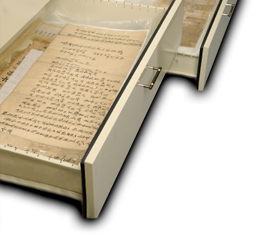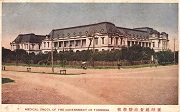|
Close to Zhuang-yi-fang Store, a three-floor Baroque-style old architecture constructed with red bricks draws attention. The carved characters “怡美(yimei)” remain on the renovated wall, telling stories of the aged architecture. The architecture located at No.129, Section1, Dihua Street was the location of Guo-yi-mei Store in the Japanese colonial period. Its manager was the wealthy merchant Guo Wu-long (1878-1973). Guo Wu-long was born in Banqiao Street, Taipei State. His father Guo Jiu was a local grocer. Guo Wu-long had been assisting his father’s business since he was 14 years old. He established Guo-yi-mei Store in Dadaocheng when he was eighteen years old. He wholesaled marine products, grains, flour and sugar which contributed to a huge capital. According to his youngest daughter’s oral memories, Guo Wu-long did not know Japanese but the secretaries he hired all graduated from Taihoku Imperial University. As the successful manager of Guo-yi-mei Store, Guo Wu-long was engaged in many business associations. He and many merchants in Dadaocheng jointly organized the Taipei Traders Association. He had also been a councilor and vice president of this Association. In addition, he had held the position of the inspector of Daojiang Credit Associations, the director of Longjiang Credit Associations, the inspector of the Association of Store Construction Utilization in Eiraku-cho and the director of Taipei Business Association. He was among the renowned businessmen in Dadaocheng, and he also had a good relationship with Zhuang Hui-yu, the manager of Zhuang-yi-fang Store. In 1925, Gu Xian-rong, Chen Pei-gen and other literati financed the reconstruction of the Taipei Confucius Temple. Guo and Zhuang also participated and donated money. Tai-yi-hou Papers include about a hundred letters concerning Guo-yi-mei Store between 1911 and 1931. During this period, Guo Wu-long not only inquired and negotiated the market price but also played the role of a broker in trade deals. He introduced Lee Jin-he, the founder of Zhen He Store, to Tai-yi-hou in 1927, contributing to the cooperation of these two parties (see Figure 3). Zhen He Store was in active interaction with Tai-yi-hou between 1927 and 1936 leaving approximately 70 letters of correspondence.   Figure 3: The letter written by Guo-yi-mei Store to Tai-yi-hou on February 18, 1927.
(Source: Papers of Tai-yi-hou in Nagasaki, the digital archives of the Archives of Institution of Taiwan History)
|
 |



